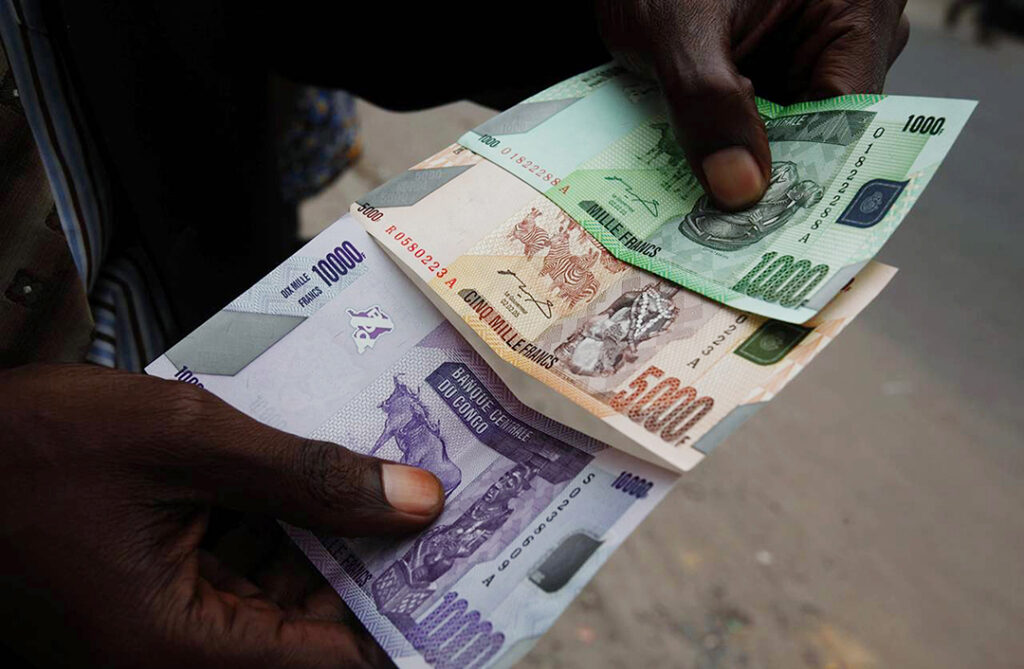ADF STAFF
In early 2023, Ugandan officials arrested a 24-year-old man from the Democratic Republic of the Congo who had entered the country illegally with forged documents. In his luggage they found $500,000 in counterfeit money.
Two years earlier, Ugandan authorities stopped a group of 10 people traveling from the DRC with $2.4 million in fake bills, apparently ready to distribute across Uganda and neighboring countries.
Recent studies show that the DRC has become a major hub for making and distributing counterfeit currency in Africa. In some cases, the fake money is made in the DRC. In other cases, people print currency in neighboring countries and smuggle it into the DRC to be distributed from there.
Rwandan authorities busted two men last year making fake $100 bills in the Bugesera region. At the time of their arrest, they had printed $100,000 worth of counterfeit currency. One of the suspects told police he had bought the paper for the fake bills in the DRC two years earlier.
Counterfeiting is just one aspect of the crime that permeates the DRC, which holds the top spot on the ENACT African Organized Crime Index’s ranking of criminality in 54 African countries.
Criminal gangs based in the DRC spread the fake money across the informal economies in the DRC, Rwanda and Uganda, where vendors may be unable to detect fake money. The counterfeit currency is often used to buy weapons, support human trafficking, and fund terrorist activities — all while undermining the economies of the countries where it circulates.
“Counterfeit currency diminishes the worth of genuine money, which negatively affects the country’s overall financial stability. It also leads to inflation,” analyst Oluwole Ojewale wrote recently for ENACT. Ojewale is ENACT’s regional organized crime observatory coordinator for Central Africa.
The primary target for counterfeiters is the U.S. dollar, which has become the main currency for the DRC after citizens largely abandoned the Congolese franc due to steep devaluation. The franc went from 2,001 per U.S. dollar in 2022 to 2,800 per dollar in 2023 — a 35% drop in value.
Counterfeiters take advantage of the widespread demand for dollars in the DRC, where most consumer goods are imported.
“As products are imported, people need foreign currency to import them,” economist Al Kitenge told DW. “But when they come to the market to get foreign currency, demand is so great that the Congolese franc loses value because people are prepared to pay more to get that foreign currency and to import them.”
As demonstrated by arrests in Rwanda and Uganda, the DRC’s porous borders often put the burden of enforcement on the countries threatened by the counterfeiters.
Public corruption and weak law enforcement have effectively crippled the DRC’s ability to respond to counterfeiting, according to observers. As a result, the DRC is missing an opportunity to take on terrorists through its financial foundations rather than head-on in the battlefield, according to analysts with the Action Group Against Money Laundering in Central Africa (GABAC).
“Prosecuting authorities do not seem to take financial aspects into account in terrorism investigations,” GABAC analysts reported. “The DRC authorities seem to focus solely on the security aspect of terrorist threats and do not take into consideration the potential risk of financing terrorism.”
The DRC has laws that could curtail counterfeiting, but they are poorly enforced. The country officially reported just two cases of counterfeiting in the past year — a situation that evidence suggests is far out of line with reality, according to Ojewale.
“This represents only a drop in the ocean of counterfeit currency crime in the country,” he wrote for ENACT.

